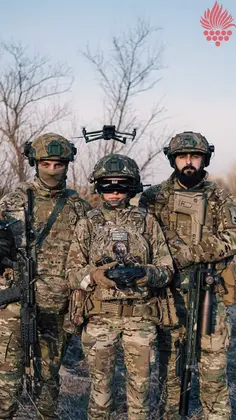Kyiv will receive long-range precision-guided Army Tactical Missile Systems (ATACMS) in the latest US funding bill that is advancing through Washington’s bi-cameral legislature.
“The great news is that this is finally happening,” Senate Intelligence Chairman Mark Warner (D-Va.) told US national broadcaster CBS News’s Face the Nation program on April 21. “It should’ve happened six months ago…the next best if not then then this time, this week.”
JOIN US ON TELEGRAM
Follow our coverage of the war on the @Kyivpost_official.
Those projectiles have a maximum range of 300 kilometers and could potentially reach such targets as the illegally built bridge that links mainland Russia with the occupied peninsula of Crimea.
The House of Representatives approved the latest funding bill for Ukraine on April 20 which includes more than $60 billion in assistance and a separate one to confiscate frozen Russian central bank assets for the benefit of reconstruction in the war-torn country.
Combined and held in North America and the European Union, those frozen assets equal about $330 billion.
The Senate in the upper legislature still must vote on Ukrainian assistance before President Joe Biden receives it for a signature.
“It is the security interests of the United States that Ukraine prevails” in the Russo-Ukrainian war, NATO Secretary General Jans Stoltenberg told PBS News Hour the previous day. “Military support for Ukraine is not about charity, it is an investment in our own security.”

How US Loopholes and Lax Enforcement Fuel Russian Sanction Busting, Prolong Ukraine War
The Senate is expected to vote on the Ukraine funding bill either on April 23 or April 24.

Harvard University to live-stream lecture on Ukrainian Soviet-era dissident Vasyl Stus’s poetry on April 24
Cambridge-based Massachusetts Harvard University is giving an online lecture on the poetry of Vasyl Stus, who was a Soviet dissident and a Nobel Prize nominee for literature.
The in-person and live-streamed lecture (via Zoom) on April 24 will be delivered by Bohdan Tokarskyi, a research fellow and incoming assistant professor of Ukrainian literature and culture at the university.
Before the Donetsk-based poet’s fateful arrest in 1972, he said: “The 20th century has demanded of the artist the kind of character that is capable of withstanding superhuman overburden.”
In the year that Stus died after declaring a hunger strike in 1985 at a forced Russian labor camp called Perm-36, he had just been nominated for a Nobel Prize for literature.
The forced labor camp closed three years after his death.

Zelensky hosts a bi-partisan Congressional delegation and emphasized the need for more air defenses
Ukrainian President Volodymyr Zelensky met with five bi-partisan US lawmakers in Kyiv whose visit on April 22 was “another reminder that our commitment to Ukraine is unwavering,” the US Embassy in Ukraine said on X (formerly Twitter).
He hosted the delegation after holding a phone call with US President Joe Biden and following a crucial vote in the lower House of Representatives to provide more than $60 billion in aid to Ukraine.
"Thank you again for this. The people of Ukraine were counting on this decision. We are glad that the United States remains with Ukraine, that you remain our main powerful ally," Volodymyr Zelensky said. “We are in absolute need of air defense.”
As soon as the House-passed Ukraine bill is approved in the Senate – expected either on April 23 or April 24 – Biden “assured me that he will sign the bill immediately,” Ukraine’s second war-time president tweeted.
On his end, Biden tweeted that he “is ready to quickly provide new security assistance to meet Ukraine’s needs on the battlefield.”
He added by saying, “I urge the Senate to send the national security package to my desk so…I can sign it.”
SIPRI: Ukraine 8th largest military spender in 2023
Ukraine’s military spending last year was $44.2 billion less than Russia’s, a report by the Stockholm International Peace Research Institute (SIPRI) said on April 22.
Kyiv’s military spending surged by 51 percent in 2023, reaching the equivalent of $64 billion, or 59 percent of what Moscow spent, the report stated.
By comparison, the US military expenditures surpassed $900 billion.
“Ukraine also received at least $35 billion in military aid during the year, including $25.4 billion from the USA. Combined, this aid and Ukraine’s own military spending were equivalent to about 91 percent of Russian spending,” SIPRI said.
Twenty-five thousand Russian troops are trying to storm Chasiv Yar
A strategic town 15 kilometers west of the Donetsk regional town of Bakhmut and 50 kilometers north of the conquered town of Avdiivka is defending itself against about 25,000 Russian soldiers, Ukraine’s eastern military spokesperson, Nazar Voloshyn, said on national Ukrainian television on April 22.
The town stands on heightened ground and is considered a gateway to the key Donetsk regional towns of Kramatorsk and Slovyansk.
Both were liberated in 2014 after Russia’s initial invasion of 2014 and Kramatorsk acts as the main headquarters of Ukraine’s eastern military command.
You can also highlight the text and press Ctrl + Enter










